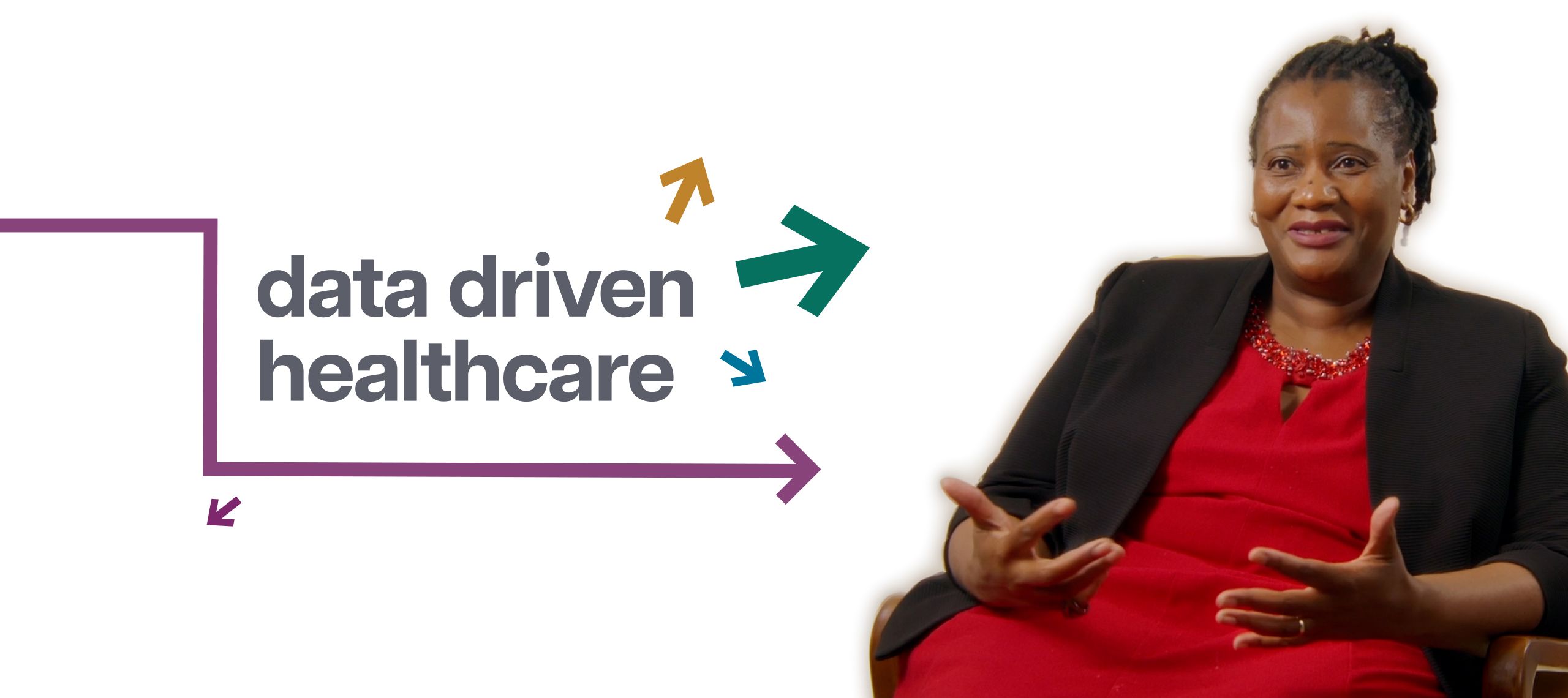
Research Journeys: Data driven healthcare
For me that was a game changer, because it equipped me with all the skills that I needed.
Theresa was one of few in her class that enjoyed the bio mathematics module. She knew then that she wanted to be a biostatistician and a long journey ahead of her began.
With her aspirations exceeding the possibilities around her she sought out a PhD. Her career after her PhD was slow to start, as a black female she felt invisible. But now with guidance she has been able to make the next steps and aims to one day become a professor of biostatistics.
This Research Journey is part of a collection made with members of the 100 Black Women Professors NOW network.
Browse stories from the collection.
Transcript
[Theresa is sitting in front of a white background speaking directly to camera.]
Theresa: It all started when I was doing my first degree in biological sciences at the University of Zimbabwe. We had a module called bio mathematics. It was a very difficult module and most students didn't like it. But I liked it. I had a passion for analysing data. I was determined that I was going to be a biostatistician one day. It took me a long time to get a job.
One day when I was going for a funeral, I sat in the bus with a man who was reading a newspaper. I never liked reading newspapers. But it was a long journey and I got bored. I borrowed the paper that he gave me. I flipped through the pages and in the vacant section there was an advertisement for a biostatistician role. They wanted somebody with two years experience. At first I was a bit hesitant to apply for the job because I didn't have the experience. But however, I applied and to my surprise I got the job.
I joined the University of Zimbabwe as a biostatistician. My role was to advise researchers, veterinarians, to design research projects, to collect data and to analyse data. I enjoyed the data analysis part of that job but I really, really struggled with providing advice on designing those research projects. At one point I thought they were going to fire me but they didn't. Instead they provided me with training and I was working with very helpful and supportive people in that team. And an opportunity came up. They wanted to send somebody to UK to do a master's in biostatistics or epidemiology. That opportunity was offered first to veterinarians and most of them were not comfortable. They thought it was a very hard course. So I was approached and I said I agreed because that's what I was looking for.
So I grabbed the opportunity and came to the UK in 1993 at Reading University where I did my diploma in statistics and then went on to do a master's in biometry. For me that was a game-changer because that master's equipped me with all the skills that I needed. So when I finished at Reading University I went back to Zimbabwe and continued working as a biostatistician. I really enjoyed my job now because I had all the skills that I needed and my career was really flourishing. I was promoted to senior biostatistician, then principal biostatistician.
Somehow that was not enough for me. I wanted to do a PhD. I wanted to further my skills. I could see that there was no opportunity if I'd remained at the research lab to do a PhD so I had to leave and joined the University of Zimbabwe as a lecturer in applied statistics. I was also involved in statistical consulting work for non-governmental organisations such as food and agricultural organisations, world food programmes. I enjoyed that work because we're doing research with impact. Research that affected or improved the livelihoods of people in Zimbabwe. But still I wanted a PhD so I had to leave.
In 2008 I came to the UK, joined the University of Leeds as a lecturer in biostatistics. I was teaching research methods, medical statistics and I was also providing statistical support to postgraduate students and staff in school of medicine. I really, really enjoyed that part of my work because that's exactly what I was doing when I was doing statistical consultancy in Zimbabwe and I really liked to see my students using the statistical skills that I taught them in their projects. They were doing very important research in health, saving people's lives. So I kept on looking for an opportunity to do a PhD even part-time and I had a supportive line manager that time who helped me to find funding to do a part-time PhD in biostatistics.
So my dreams were starting to come true. It was hard because I did like a full-time job and this PhD on the side but with perseverance I managed.
After completing my PhD I had ups and downs again in my career. As a black female I felt I was very invisible. I felt I was like isolated sometimes and it took me like seven years to get to the next grade. I came out of that WEN programme or the 100 Black Females programme with a career action plan which I'm now implementing and I'm getting a lot of support and hopefully one day I'll become a professor of biostatistics continuing with the work that I'm doing in medical research to save people's lives and improve people's quality of life.